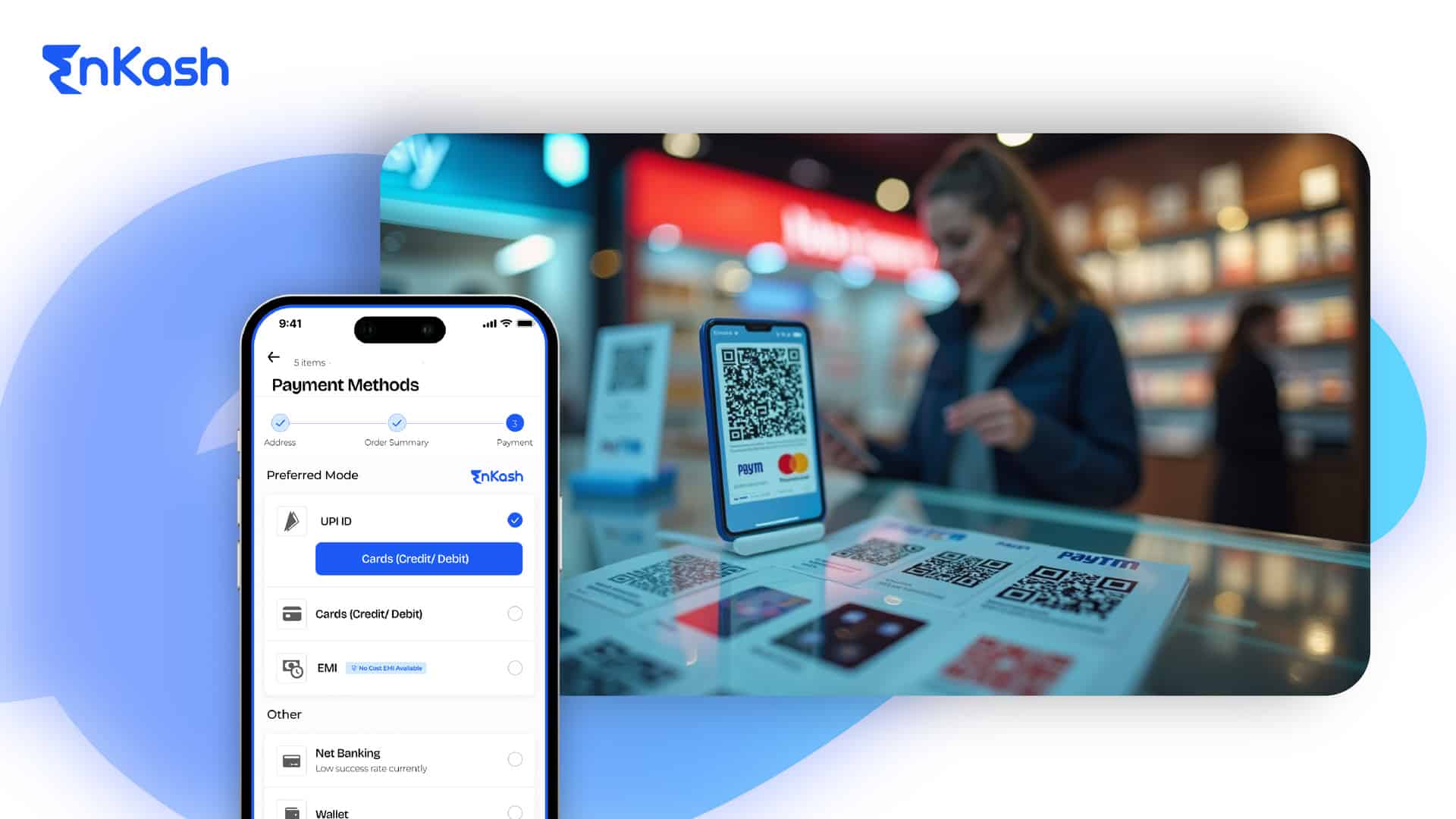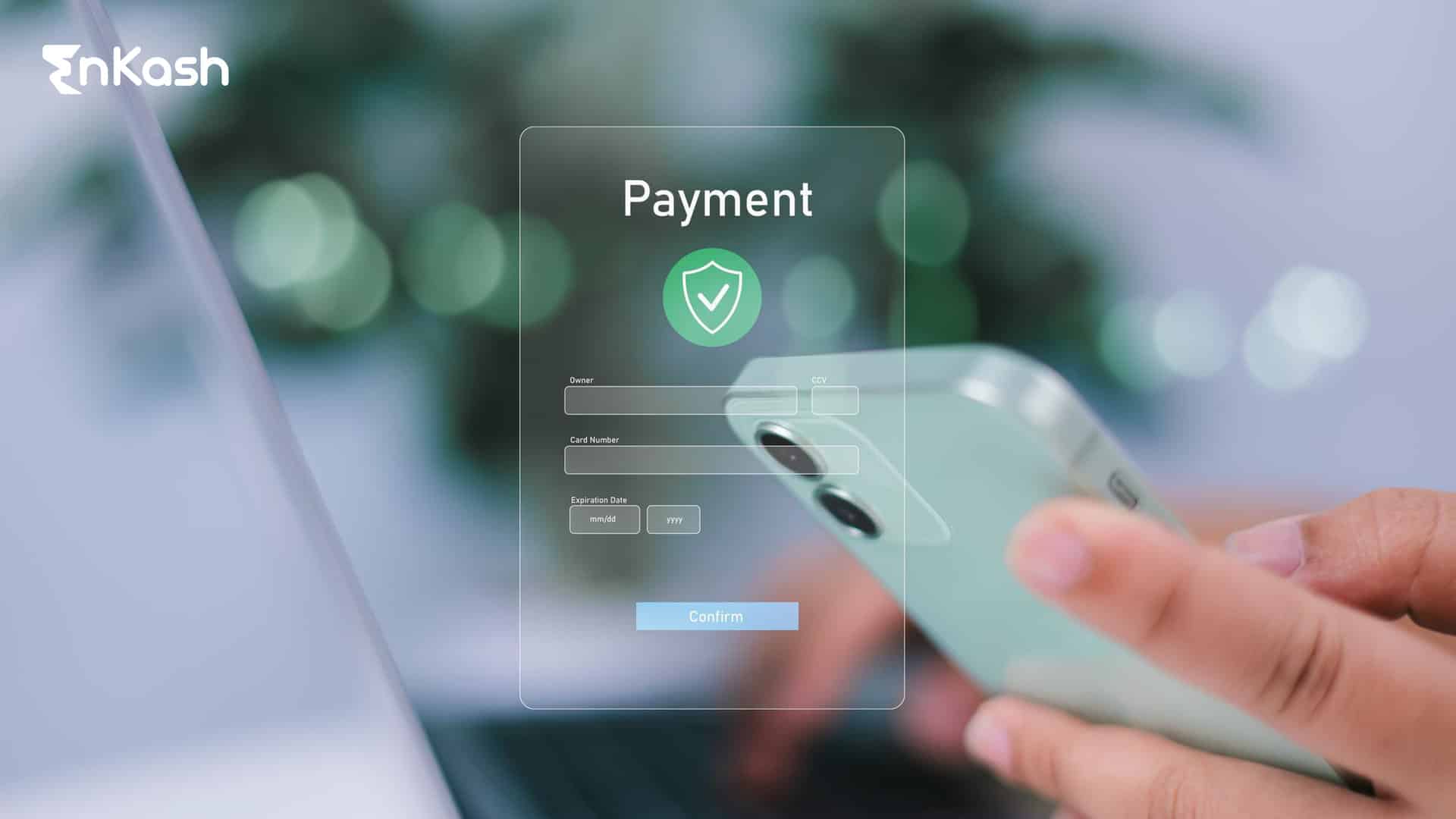An Invoice Reference Number (IRN) is an alphanumeric code generated in real-time for every invoice transacted per India’s GST e-invoicing. It helps validate the B2B transactions generated in the system securely and transparently. IRN helps authenticate real-time validation of transactions and generates e-way bills and periodic tax reporting. It also helps check fraudulent transactions, which ultimately helps improve compliance and audit readiness. This system helps in accurate and efficient GST operation, which will be a more trusted and tamper-proof invoicing environment.
What is IRN?
The IRN full form in GST is the Invoice Reference Number. It is the most important aspect of India’s GST e-invoicing mechanism for standardizing and simplifying B2B invoicing. Businesses with an annual turnover of more than INR 50 crore are mandated to obtain an IRN from the Invoice Registration Portal (IRP). This helps to reduce tax evasion and achieve compliance automatically.
The invoice is then verified, assigned an IRN, digitally signed, and returned to the submitter using the IRP GST system. This assures its authenticity and prevents tampering, as the IRN cannot be changed once created. Furthermore, the system links to the e-way bill generation process, automating the entire chain of documents to move goods and streamlining the whole supply chain management process. This greatly reduces mismatches between reported transactions and sales, increasing tax reporting accuracy.
The introduction of IRN is part of the broader digitization of the Indian tax regime to make the filing of returns easy. The real-time validation of transactions prevents unauthorized issuance of invoices by fraudsters. It prevents duplicate entries, helping businesses and the government in creating a more compliant and transparent tax ecosystem. The digital pathway thus makes the Indian tax system more globalized but also more transparent and compliant.
The IRN is, therefore, not a mere technical identifier but a crucial means to secure the long-term viability of India’s GST regime with its advantages of lower human error, greater ease of compliance, and greater traceability in invoicing.
How IRN Works in the GST System?
IRN plays a pivotal role in the invoicing and payment processes within India’s GST e-invoicing system. When a business initiates an invoice, the details are promptly transmitted to the Invoice Registration Portal (IRP). Here, the information undergoes a thorough correctness and GST compliance check. Upon successful validation, the invoice is assigned a unique Invoice Reference Number.
The IRN is a 64-character alphanumeric code, a digital signature for that invoice. The IRN is generated and then embedded in the invoice and in the QR code with the supplier’s GSTIN (goods and services tax identification number), the buyer’s GSTIN, the invoice number, and the date. Then, the invoice is digitally signed by the IRP and is sealed like a tamper-proof invoice.
Furthermore, by cross-referencing the same data with the GST system, the IRP verifies that this entry has not been made already or as an attempt at fraudulent receipt of government funds. Once the IRN is issued, it cannot be changed or reissued, again reducing the incidence of fraud. The IRN is then returned to the supplier along with the digitally signed invoice and QR code.
One important feature of this system is that e-way bills feed into it. The IRN system auto-populates the e-way bill required for goods to be transported from one point to another, lessening the burden of manual data entry and helping maintain consistency within the GST filing system.
This real-time validation of invoices using IRN generation helps businesses prevent mistakes and delays in tax return filings and reduces opportunities for invoice manipulation.
Read More: Types of GST
Use of IRN Number in GST
The Invoice Reference Number is a key feature of India’s GST e-invoicing system, designed to enhance the efficiency, accuracy, and compliance of B2B transactions. GST rules and regulations ensure that all B2B invoices are validated in real-time before being issued. The best part? The IRN is automatically generated by the Invoice Registration Portal (IRP), reducing manual efforts and ensuring a smooth process.
The IRN is also linked to the e-way bill, an automated system for generating transit documents that accompany the movement of goods. This link integrates the IRN with the e-way bill, allowing recording of the movement of goods without any human intervention. For businesses, this means that the integrity of the movement of goods is now recorded and that the authorities can track goods more effectively.
Besides, the IRN prevents tax evasion. Because an invoice for every B2B transaction of more than INR 50 crore in value annually must necessarily have an IRN, it ensures that all B2B sales invoices are automatically and in real-time reported to the government. (They cannot be passed by stealth and cannot be hidden by embellished sales books.) IRN thus promotes good behavior in the market.
IRN will digitize invoices (through IRN) more readily available for tax authorities to audit and inform tax compliance. All invoices generated under IRN will be duly stored and digitally and linked with the GST system and easily available and authenticated for tax authorities when they audit.
Another key benefit of IRN is that it facilitates tax filing because all invoices are now validated. Therefore, businesses can now file their Goods and Services Tax (GST) returns more precisely, reducing the gap between the number of invoices issued and the GST tax reports filed. This also reduces the chances of the business getting detected for any tax mismatches or paperwork, making tax filing easier and quicker.
The IRN also authenticates the invoice because the identifier is unique and non-updatable. A scheme, such as the invoicing scheme described here, is based on the fact that once an IRN is generated, it cannot be changed or re-used. Thus, the invoice will maintain its integrity, and changing any invoice data will not be possible. This aspect is crucial in guaranteeing the security of the invoicing scheme and is especially important for sectors in which fraud is endemic.
Lastly, the IRN certifies and brings a new efficiency level to the GST cycle. The need for the consumer to spend time on generating an e-way bill is eliminated; chances of errors in tax reporting go down, and tax audits become easier. The reason why the IRN finds a central role in the country’s GST framework boils down to this.
Steps to Generate IRN
Businesses generate the individual Invoice Reference Number (IRN) for each invoice. After checking the data, they upload the invoice details to the Invoice Registration Portal (IRP), which generates the IRN. The IRN is generated as follows:
- Create an Invoice: The first step is to create the invoice on your enterprise resource planning (ERP) system or accounting software. The invoice should include the invoice number, date, the GSTIN of the supplier and recipient, items and rate of goods and services provided.
- Upload to IRP: Once it is ready, the invoice will be uploaded to the Invoice Registration Portal (IRP). It can be integrated through an API, offline tools, or Enterprise Resource Planning (ERP) systems such as IRP.
- IRP Validation: The uploaded invoice is then sent to the IRP to check for compliance with the GST rules. It verifies fields like GSTIN of supplier and recipient, the existence of duplicate invoices, their upload date and time, and other required fields.
- Generation of IRN: After the IRP validates the invoice, the system generates the 64-character alphanumeric IRN and creates a QR code that contains all the important details about the invoice. The GST system now digitally signs the IRN and QR code, thereby providing the authenticity and integrity of the invoice.
- Receive Digitally Signed Invoice: The IRP sends back the digitally signed invoice, with the IRN and the QR code, to the supplier. This invoice is ready for use; the supplier must provide it to the recipient.
- Automatic Generation of e-Way Bill: If the bill contains shipments, IRN automatically generates an e-way bill, so you don’t have to type in all that information. The system extracts that information from the invoice and inserts it in the e-way bill.
Integration with the IRP has made the process more efficient, ensuring businesses can easily generate IRNs while remaining compliant with GST regulations. The process ensures transparency and reduces errors in invoicing, ultimately benefiting both businesses and tax authorities.
Read More: Difference Between CGST SGST and IGST
Common Issues and Solutions in IRN Generation
Despite the many benefits of the IRN system, businesses often face challenges during the IRN generation process. One of the most common issues is technical errors when uploading invoices to the Invoice Registration Portal (IRP). The most common reasons for the failed generation of IRNs include incorrect GSTIN numbers, mismatch in the invoice details compared with what is recorded in the returns of both the supplier and the recipient of the invoice, or errors in the format of the invoice itself.
The other common complaint is downtime or slow response times for the IRP, especially during heavy filing periods, which can cause delays in generating IRNs and, therefore, invoices. To avoid this, businesses can make uploads during off-peak hours or use accounting software integrated with the IRP to automate the process.
Errors in data validation would be another issue. The IRP cross-checks data from the GST system, and if it finds inconsistencies (such as the GSTIN number being incorrect or an invoice already being raised by the same vendor), the IRN generation will fail. Companies should ensure the supplier and buyer’s GSTIN is correctly keyed in and verified before the invoice uploads.
Integration issues with e-way bill generation can arise if the input data provided for the generation of e-way bills is incomplete or inaccurate. This is often the case due to a failure to provide all the relevant transport details and mismatches in the data provided in an invoice versus an e-way bill. A business must ensure its ERP or accounting system is correctly configured to sync invoice data with e-way bill generation.
Furthermore, problems with IRN cancellation and modification are emerging, especially the very tight time frame (24 hours) for cancellation. Thus, businesses need to check the invoice carefully before creating the IRN.
Cancellation and Modification of IRN
The IRN can be cancelled and modified only under very specific circumstances. Once an IRN has been generated, it cannot be changed. It can be dismissed within 24 hours. If a business finds an error in the invoice generated or the opposite party has cancelled the transaction, it is expected to cancel the IRN from the IRP through the Invoice Registration Portal as soon as the error is detected or the transaction is cancelled.
Cancelling an IRN A business can cancel an IRN on the IRP or with its integrated accounting/ERP system. The business will need to enter the IRN or the acknowledgement number and then select a reason for the cancellation. Once the 24-hour window has passed, a business cannot cancel an IRN, and it will need to issue a debit or credit note to amend the transaction details recorded on its GST returns.
Further, cancellation is not permitted if an e-way bill linked to the invoice reference number has already been generated and is active. In such cases, a credit or debit note must be issued. The thing to keep in mind is that once an IRN is cancelled, the corresponding invoice number cannot be used to generate a new IRN.
For firms with frequent cancellations, it is crucial to cross-check the contents on the invoice with those on the original order before sending the form to the IRP. This practice, when combined with the use of ERP systems, speeds up invoice creation and submission by automatically extracting data directly from firms’ financial transaction systems, thereby reducing the chance of errors and ensuring compliance with tax regulations.
These strict timing and procedural rules for IRN cancellation and modification reinforce the system’s integrity to enforce compliance and guard against errors in tax filings.
Read More: Types of GST Returns
Impact of IRN on Small and Medium Enterprises under GST
Micro and small enterprises with turnover less than INR 50 crore, exempt from the IRN requirement, will now incur the costs when this mandate is extended. The IRN for SMEs would mean extra software and investment of time in more complicated invoicing software systems and training of teams in compliance. For smaller firms, the costs could be higher.
In the longer run, the IRN system may benefit SMEs by reducing GST return errors and automating the generation of invoices, thereby reducing errors and increasing transparency and accuracy in financial reporting. This could help prevent issues leading to fraud or incorrect invoicing that would otherwise be detected in return and triggering an audit or dispute between an SME and the tax authorities. In turn, it could better position SMEs to create a reputation and trust with their stakeholders, suppliers, customers and the tax authorities.
Moreover, those SMEs who are early adopters of the IRN system could gain more operational efficiency from the e-invoicing and e-way bill integration, easing logistics and reducing manual paperwork. Government regulations can serve as a level playing field in a competitive market, and a new tax regime could enable SMEs to scale faster as long as they are in good standing with the tax authorities. It might be a strategic way to become more professional and compliant for some companies, especially those with an ambition to grow and compete with larger firms.
Thus, while there are upfront challenges associated with the adoption of the IRN system for SMEs, the long-term advantages of improved compliance, error reduction, and operational efficiency could outweigh the initial costs. Preparing for potential future mandates around IRN could position SMEs for smoother transitions and more sustainable growth in a highly regulated environment.
Read More: GST State Code List
Role of IRN in Cross-Border Transactions and International Trade
As India continues to integrate with global markets, the Invoice Reference Number plays an increasingly important role in managing cross-border transactions. For businesses engaged in import and export activities, the IRN system ensures that invoices comply with GST and customs regulations, facilitating smoother international trade. By providing real-time validation and automated documentation, the IRN helps streamline processes like duty payments and customs clearances, ensuring faster movement of goods across borders. This integration promotes global trade efficiency while maintaining compliance with India’s tax system.
Conclusion
The Invoice Reference Number is a critical component of India’s GST e-invoicing system, playing a vital role in enhancing compliance, improving tax reporting, and reducing fraud. Ensuring that every B2B invoice is validated and authenticated through the Invoice Registration Portal (IRP) adds transparency and efficiency to the invoicing process.
From helping generate e-way bills with accurate information to facilitating returns reconciliation, IRN is engineered to make tax workflows easier for taxpayers and tax officers. Failing to cancel and modify an IRN on time is a breach of the rules. In the larger context of India’s digitized tax system, IRN is a means to ensure proper invoicing and prevent what appears to be tax evasion.
Read More: Credit Note in GST
FAQs
What happens if an IRN is generated with incorrect details?
An IRN can be cancelled within 24 hours of generation if the tax invoice is issued with inaccurate details on the IRP. After 24 hours, businesses must rectify the errors by generating debit or credit notes to correct the errors that have entered the GST returns.
Can an IRN be reused after cancellation?
No, once an IRN is canceled, the same invoice number cannot be used to generate another IRN. The IT system will assign a new and unique invoice number for any future transactions that require IRN generation. This provides a check that ensures all invoices generated under the GST system are authentic and unique.
Is IRN mandatory for all businesses?
The IRN system is mandatory only for businesses whose annual turnover exceeds INR 50 crore. Businesses with a turnover lower than this threshold are exempt unless the government specifically notifies them. The provisions of GST rules around e-invoicing and IRN generation may be extended, forcing more businesses to use this system.
What happens if the e-way bill is generated but the invoice needs to be cancelled?
Once the e-way bill is raised and linked to the IRN, the IRN cannot be cancelled, and the business must issue a debit note or credit note to reverse or amend the transaction in line with GST invoicing and the movement of goods regulations.
How does the IRN help in preventing tax evasion?
Each B2B payment is recorded and validated in the IRN in real-time. This makes it impossible now to issue fake invoices or fake duplicate invoices. Under GST, with all the invoices being tracked in real-time, there is hardly any scope for data manipulation, at least not to the extent it was possible before, leaving very little avenue for black accountancy or wrongly filed returns.
Are B2C invoices required to have IRN?
No, the IRN system only applies to invoices that have a B2B transaction. Under the GST, B2C invoices are not required to have an IRN. For B2C transactions, the GSTN system provides an invoice number, though it is not technically an invoice reference number. Moving forward, it is possible that the scope of e-invoicing with a mandatory IRN can be expanded.
Can IRNs be generated offline?
IRNs must be generated online on the Invoice Registration Portal (IRP). Still, when generating invoices, firms can use Enterprise Resource Planning (ERP) systems or standalone accounting software with offline capabilities, uploading the invoices to the IRP when they return online. This way, the system is hybridized, and businesses can keep working even when the network darkens.
What is the role of the QR code in IRN?
The important information – such as the supplier’s and buyer’s GSTIN, the invoice number, date, and total amount – are embedded in a QR (Quick Response) code created along with the IRN. Inspectors can verify this information during an audit or while transporting goods. It also signals that the invoice is indeed authentic and not a fake.
Is it possible to modify an IRN after generation?
No, once created, an IRN cannot be amended. If errors are identified, the IRN must be canceled within 24 hours, and the correct information must be passed to the financial system using a new IRN. If the 24-hour window has been missed, a debit or credit note should be issued to make the changes.
What are the penalties for failing to generate an IRN?
For example, under the GST law, not generating an IRN when required may result in penalties such as fines and interest for late or incorrect tax reporting. A business that does not comply may have problems during a tax audit, which may also bring other legal and financial consequences.













